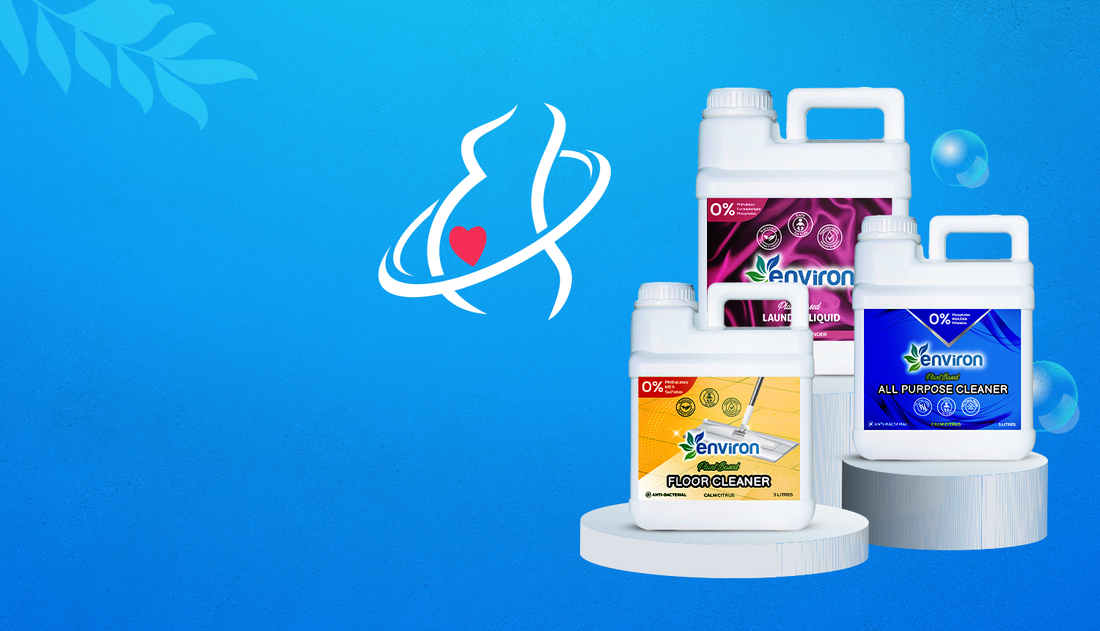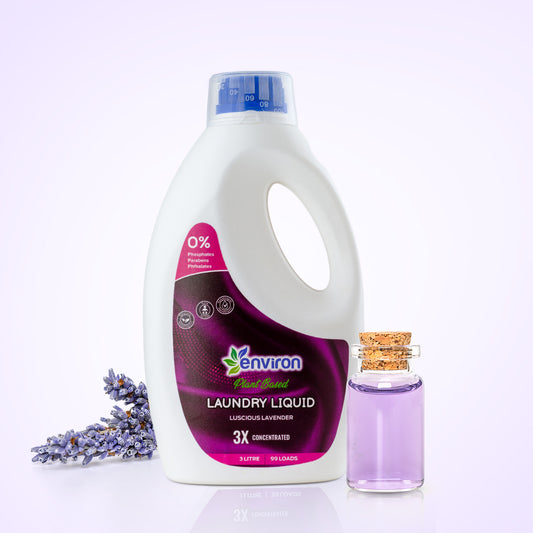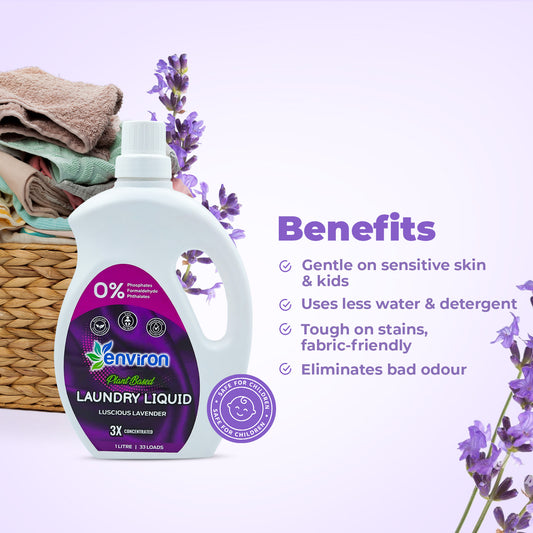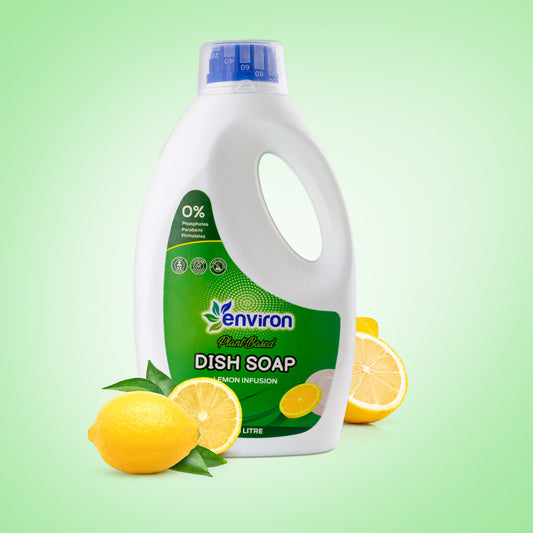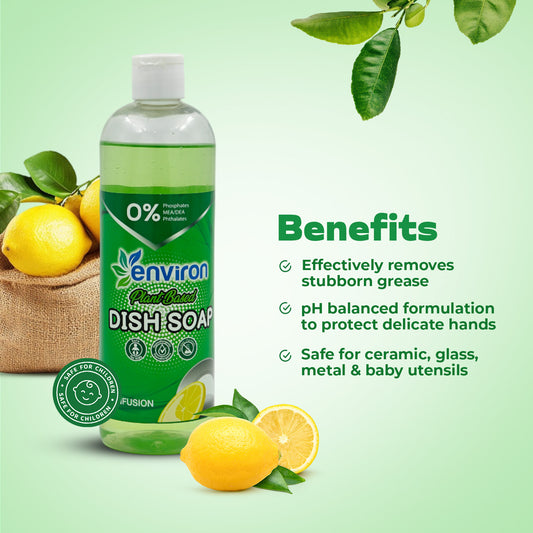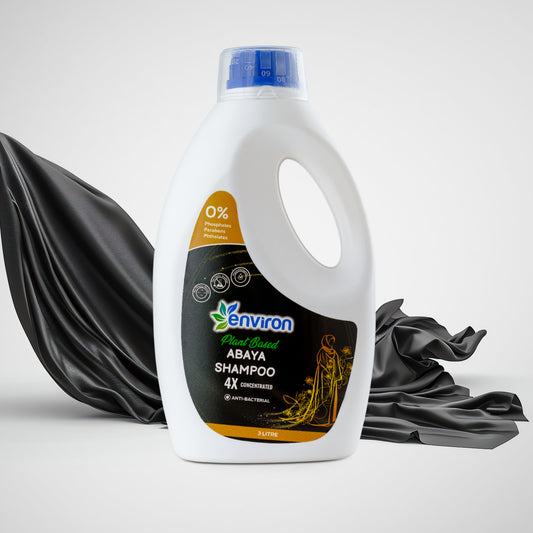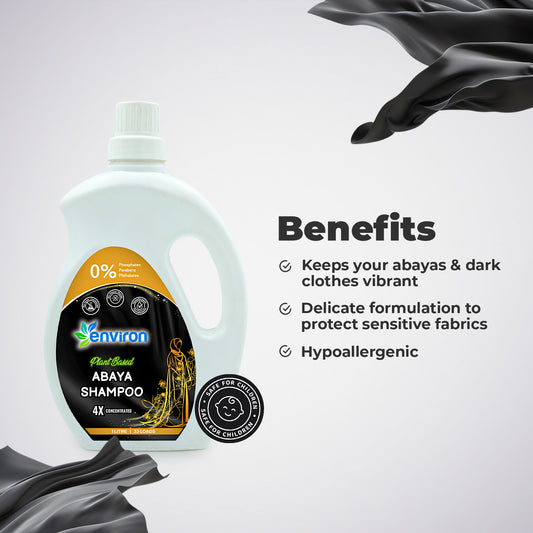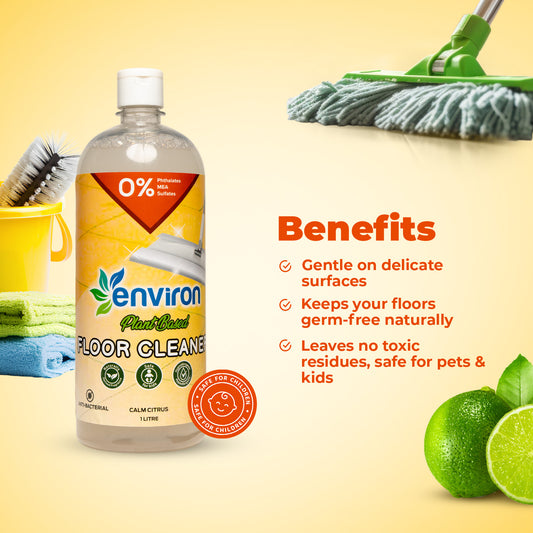Have you ever considered what might be lurking in your cleaning products and how it could be impacting your health? While we strive for immaculate homes, traditional cleaning agents often conceal a hidden danger: their effect on our fertility. Recent studies reveal that the chemicals we use to maintain cleanliness can also influence our reproductive health.
In this blog, we'll get to know about the reasons behind these problems and explore how choosing more eco-friendly and safer cleaning solutions can help protect your good health and maintain a clean environment. Let’s discover how every day, unknowingly, you are facing danger and how you can be a part of a healthier, more sustainable lifestyle by eliminating them.
The Hidden Risks in Cleaning Products
While cleaning detergents are essential for maintaining hygiene, some contain chemicals that have been linked to potential reproductive health risks. You can find these chemicals in different types of products, such as:
- Laundry Detergents are commonly used for clothes cleaning and often contain preservatives, dyes, and synthetic fragrances.
- Household Cleaning Products include toilet cleaners, glass cleaners, and all-purpose cleaners.
Many traditional cleaning products contain endocrine disruptors (EDCs), which can disrupt the body's hormonal system and potentially lead to reproductive health problems. EDCs are substances that can interfere with the endocrine system, a network of glands that produces hormones.
How Chemicals in Cleaning Products Affect Fertility

- Hormonal Disruption: Some chemicals in cleaning products imitate hormones. Phthalates, commonly found in perfumes, can be harmful and interfere with hormone production, causing issues with fertility. By this process, both men and women are affected; in women, it results in irregular menstrual cycles, while in men, it might lead to decreased sperm quality.
- Chemical Sensitivity: Certain chemicals can cause allergic reactions, especially in individuals with sensitive skin. Long-term exposure to these chemicals can lead to health problems that might indirectly affect fertility.
- Bioaccumulation: Continuous contact with toxins in household cleaners might cause them to build up in the body, which can have an extended effect on reproductive organs and general health.
- Pregnancy Risks: During pregnancy, chemicals in cleaning products can lead to an increased risk of developmental disorders in babies. This should be the main concern as it is mainly about the health of the unborn kid, and this shows possible health hazards.
Also Read about Endocrine Disrupting Chemicals in Cleaning Products
Choosing Safer Alternatives

Given the potential risks associated with traditional cleaning products, opting for safer alternatives can help mitigate these concerns. Here are some tips for selecting better options:
- Opt for Detergent for Sensitive Skin: Products labeled as suitable for sensitive skin often have fewer synthetic chemicals and fragrances. These are generally less irritating and a safer choice for reducing potential reproductive health risks.
- Explore Natural Cleaning Products: Many natural cleaning products are available in Qatar and beyond. These often use plant-based ingredients and avoid harsh chemicals, making them a safer choice for your health and the environment.
- Read Labels Carefully: When choosing cleaning products, carefully examine the ingredient list. Opt for products like laundry detergent, toilet cleaner, handwash liquid, fabric conditioner and more that avoid endocrine disruptors and synthetic fragrances.
- Consider DIY Cleaning Solutions: You can create your own eco-friendly and non-toxic cleaning solutions using natural ingredients like vinegar, baking soda, and lemon juice. Alternatively, you can also explore plant-based cleaning alternatives like Environ's products.
- Ventilation is Key: When using cleaning products, ensure that the area is well-ventilated. This can help reduce the concentration of airborne chemicals and minimize exposure.
- Seek Products from Reputable Brands: Some brands specialize in environmentally friendly and health-conscious cleaning products. Look for certifications and endorsements from trusted organizations to ensure the products are safe.
Conclusion
Finally, now you are aware that the strong chemical contents in traditional cleaning products, like laundry detergents and household cleansers, could pose a risk to reproductive health. By selecting the right cleaning products and understanding their potential hazards, you can protect both male and female fertility. Opting for detergents for sensitive skin, exploring natural alternatives, and diligently reading product labels can significantly reduce your exposure to harmful chemicals. In Qatar, where a variety of cleaning products are available, making informed choices can lead to better health outcomes and a cleaner environment.

